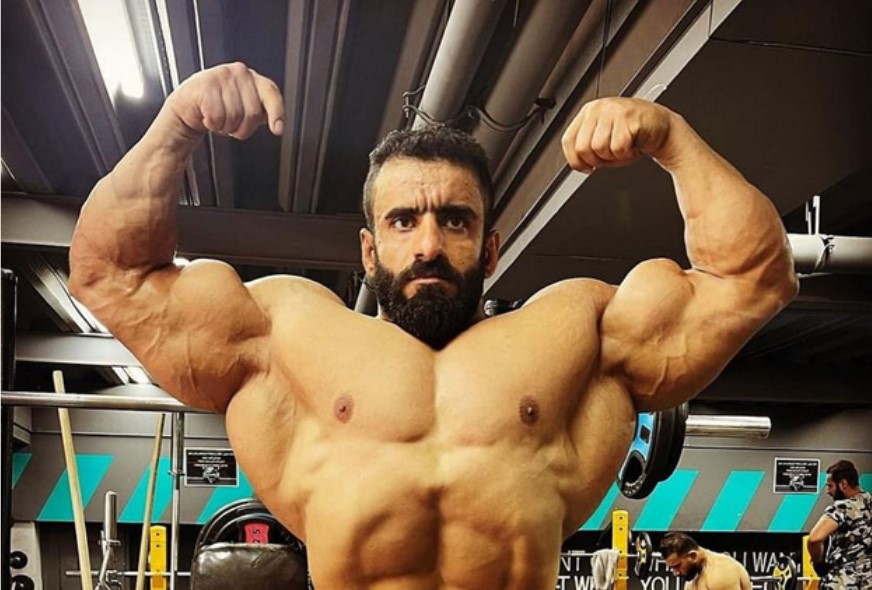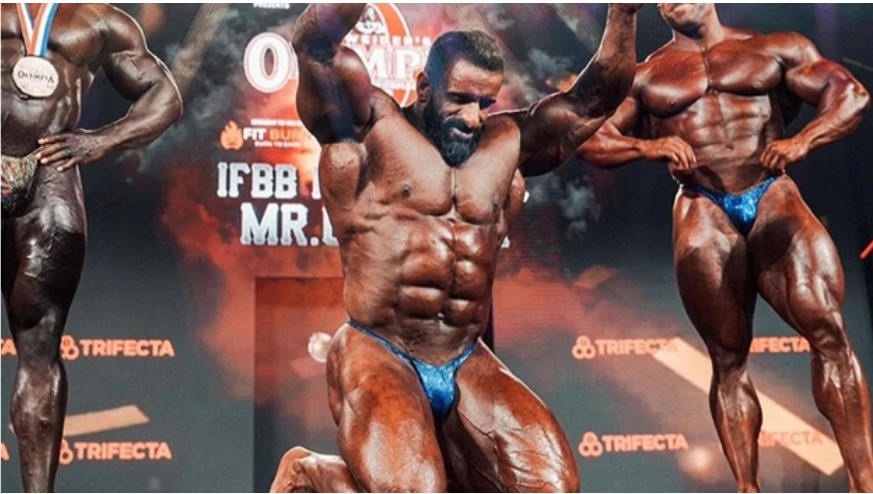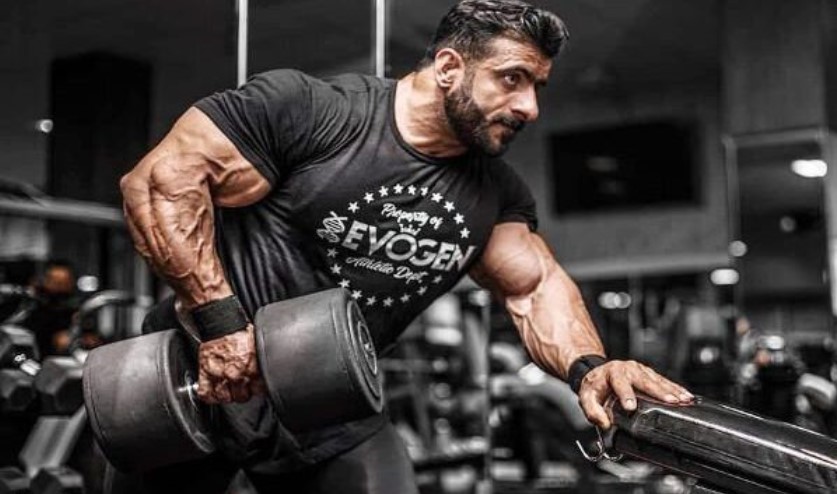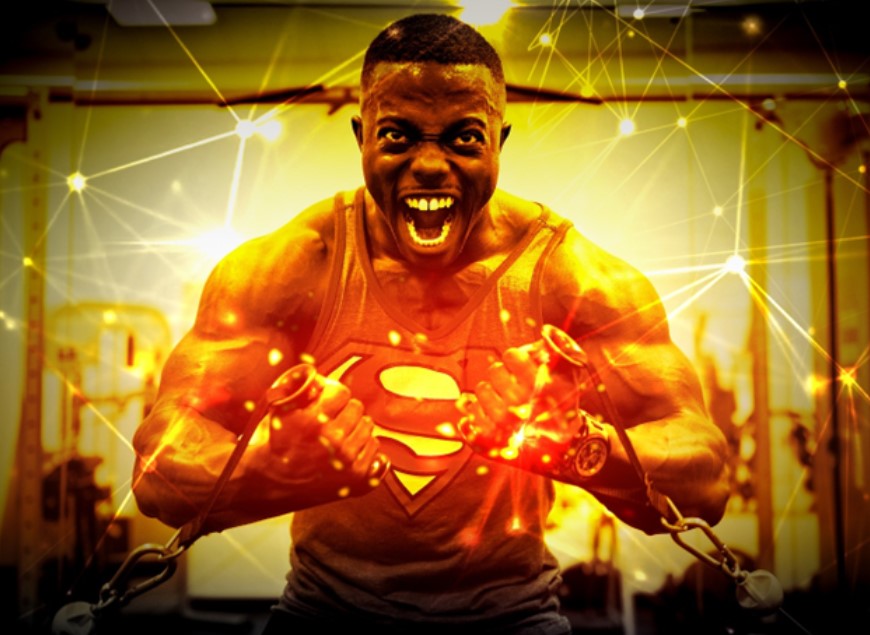Pro Bodybuilding is a highly competitive sport that requires dedication, discipline, and the right training and diet strategies. With its roots in ancient Greece, bodybuilding has evolved into a global phenomenon, attracting top athletes from around the world.
In this blog, we will take you behind the scenes of pro bodybuilding and explore the different divisions, qualifying for competitions, and training like a pro bodybuilder.
Whether you’re an aspiring professional or just curious about what it takes to be one, this blog has something for everyone interested in pro bodybuilding.
What is Pro Bodybuilding?
Pro bodybuilding, also known as professional bodybuilding, is a competitive sport and lifestyle focused on developing and sculpting the human body to its maximum muscular potential. It involves intense weightlifting, strict nutrition, and a dedication to achieving a highly muscular and aesthetic physique.
In professional bodybuilding, athletes compete on stage to showcase their muscular development, symmetry, conditioning, and overall presentation. They are judged on various criteria, including muscle size, shape, definition, proportion, and overall stage presence. Competitions are typically divided into weight classes or categories, and participants perform mandatory poses and a posing routine to display their physique from different angles.

The History and Evolution of Pro Bodybuilding
The evolution of pro bodybuilding can be traced back to ancient Greece and Rome, where athletes trained for physical strength and endurance. In the 20th century, organized events and championships led to the development of competitive bodybuilding as we know it today. The introduction of anabolic steroids in the 1950s and 60s dramatically transformed the sport, with competitors achieving unprecedented levels of muscularity. Today, pro bodybuilders focus on customized training and nutrition programs to achieve their desired physique, taking advantage of advancements in science and technology.
The Different Divisions in Pro Bodybuilding
#Men’s Bodybuilding
Successful men’s bodybuilding competitors have spent years perfecting their craft. They are judged not only on muscle mass but also on symmetry and overall physique. To prepare for competition, strict diet and training regimes are followed to build muscle and decrease body fat. Weight classes differentiate each competitor, and success in this division requires dedication and experience.
#Women’s Physique
Female bodybuilding has been a topic of discussion for quite some time now, and the Women’s Physique division has gained incredible popularity in recent years. This relatively new category emphasizes muscularity, symmetry, proportion, and presentation while still maintaining an overall feminine appearance. To compete at the highest level in this division, women must follow strict diet and training regimes that differ from other divisions due to the unique demands of this sport.
#Classic Physique
Classic Physique is a relatively new division in pro bodybuilding, but it has quickly gained popularity among fans and competitors alike. This division emphasizes balance and aesthetics over extreme muscle mass, making it accessible to a wider range of athletes. Competitors must adhere to specific weight and height restrictions, ensuring a level playing field. Judging criteria includes overall muscular development, symmetry, and presentation on stage. Training and diet strategies for Classic Physique competitors may differ from those in other divisions due to their specific goals.
#Bikini
The Bikini division is a relatively new addition to pro bodybuilding, having been introduced in 2010. Competitors are judged based on their overall shape and symmetry, as well as their stage presence and confidence. Compared to other divisions, Bikini athletes typically maintain a leaner and more toned physique through a combination of weightlifting, cardio, and targeted exercises for the glutes and abs. Diet also plays a critical role in achieving the desired look, with many competitors following strict meal plans and tracking their macronutrient intake.
#Wellness
Wellness is the newest division in pro bodybuilding, introduced in 2020. It emphasizes a more natural and athletic look, with less emphasis on extreme muscle size and definition. Wellness competitors are judged on their overall balance, symmetry, and conditioning. This category has gained popularity among women who want to showcase a fit and healthy physique without the extreme muscularity of traditional bodybuilding. Competitors in the wellness division typically have more curves and a smaller waistline compared to other divisions.
#Figure
Achieving a balanced and well-proportioned physique is the key to success in the Figure division of pro bodybuilding. Unlike other divisions, Figure competitors are judged on their overall presentation, muscularity, and symmetry. Training for figure requires a combination of exercises that help build lean muscle mass while maintaining flexibility. Nutrition also plays a crucial role in this division, with competitors following strict meal plans to achieve the desired level of muscle definition.
#Men’s Physique
Men’s Physique is a relatively new division in pro bodybuilding that emphasizes an athletic and aesthetic look. Unlike traditional bodybuilding, competitors wear board shorts, and the focus is on symmetry, muscle definition, and conditioning. Men’s Physique training requires a balance of resistance training, cardiovascular exercise, and flexibility work to achieve a well-rounded physique that is both muscular and lean. Additionally, nutrition plays a critical role in achieving the desired level of muscle definition for Men’s Physique competitors.

IFBB Pro League & NPC Divisions
Understanding the different divisions in professional bodybuilding can be overwhelming, but it’s essential to understand the distinction between IFBB Pro League and NPC divisions. The criteria for judging varies across divisions, so it’s crucial to know what judges are looking for in each competition. By familiarizing yourself with the differences between these divisions, you’ll have a better understanding of how to succeed in your chosen category.
Qualifying for Pro Bodybuilding Competitions
Competing at the professional level requires dedication, discipline, and hard work. Consistency in training, nutrition, and mental focus is crucial for success in pro bodybuilding competitions. Athletes must meet strict criteria and qualifications to enter these prestigious events.
To qualify for a pro bodybuilding competition, competitors must adhere to strict training regimens and maintain a proper diet. Pro bodybuilders often work with coaches or trainers to optimize their training plans and modify their diets for peak performance. Mental toughness is also essential as it helps athletes push through difficult times and overcome obstacles on their journey towards becoming a pro bodybuilder.
Bodybuilding Training Split
Pro bodybuilders often use a training split to focus on specific muscle groups and allow for proper recovery time. A 5- or 6-day split is common, which includes chest/triceps, back/biceps, legs, shoulders, and rest days. Individual goals and needs can influence the frequency of each muscle group’s training. Adjust your training split based on your own fitness level and schedule.
Weightlifting Techniques for Bodybuilding
Pro bodybuilders use a variety of weightlifting techniques to build muscle mass and strength. They understand that compound exercises such as squats, deadlifts, and bench presses are the most effective at targeting multiple muscle groups simultaneously. Isolation exercises such as bicep curls and tricep extensions target specific muscles and are used to fine-tune a competitor’s physique. Proper form and technique are crucial for maximizing results and avoiding injury. Pro bodybuilders also utilize progressive overload, gradually increasing the weight lifted over time, to continue building muscle mass.

Diet and Nutrition for Pro Bodybuilders
Diet and nutrition play a crucial role in the training and success of professional bodybuilders. These athletes require a specific approach to fuel their intense workouts, build muscle mass, and maintain low body fat levels. Here are some key principles to consider when it comes to the diet and nutrition of pro bodybuilders:
- Sufficient Caloric Intake: Bodybuilders need to consume a surplus of calories to support muscle growth and recovery. Caloric intake should exceed energy expenditure, typically by 500-1,000 calories per day, although individual needs may vary. It’s important to ensure these calories come from nutrient-dense sources.
- Macronutrient Balance: A well-rounded macronutrient distribution is vital. Typically, bodybuilders consume a high-protein, moderate-carbohydrate, and moderate-fat diet. However, the specific ratios may vary based on individual preferences and goals.
- Protein: Protein is essential for muscle growth and repair. Aim for around 1.2-2.0 grams of protein per kilogram of body weight daily, or even higher during intense training periods. Sources include lean meats, poultry, fish, eggs, dairy, and plant-based options like tofu, legumes, and tempeh.
- Carbohydrates: Carbs provide the energy necessary for intense workouts. Focus on complex carbohydrates such as whole grains, fruits, vegetables, and legumes. Ensure sufficient intake to support training demands and replenish glycogen stores.
- Fats: Healthy fats, such as those from avocados, nuts, seeds, olive oil, and fatty fish, provide essential fatty acids and aid in hormone production. Moderation is key, as fats are calorie-dense.
- Meal Timing and Frequency: Pro bodybuilders often consume multiple meals throughout the day to maintain a constant supply of nutrients for muscle growth and repair. Some athletes may also incorporate intermittent fasting or other strategies, but it’s essential to consult with a professional to determine what works best for individual needs.
- Nutrient Timing: Proper nutrient timing involves consuming specific nutrients at optimal times to support training, recovery, and muscle growth. For example:
- Pre-Workout: Consume a meal or snack containing carbohydrates and protein to provide energy and prevent muscle breakdown during workouts.
- Post-Workout: Consume a meal or shake with fast-digesting carbohydrates and protein to replenish glycogen stores and promote muscle recovery.
- Bedtime: Consuming a slow-digesting protein source, such as casein protein, before bed can support muscle protein synthesis during sleep.
- Hydration: Staying properly hydrated is crucial for overall health and performance. Aim to drink water consistently throughout the day and adjust intake based on activity levels and environmental conditions. Electrolyte balance is also essential, especially during intense training sessions.
- Micronutrients and Supplements: While whole foods should be the foundation of any diet, professional bodybuilders often use supplements to support their nutrient needs. Common supplements include protein powders, creatine, branched-chain amino acids (BCAAs), omega-3 fatty acids, and multivitamins. However, it’s important to approach supplements with caution and consult with a healthcare professional or registered dietitian before adding them to your routine.
Remember, the dietary needs of bodybuilders can be highly individualized. It’s recommended to work closely with a registered dietitian or sports nutritionist who can tailor a nutrition plan based on your specific goals, preferences, and any underlying health considerations.
Injury Prevention and Management
Pro bodybuilding is a physically demanding sport that can cause significant strain on the body, resulting in injuries. Injury prevention and management are crucial to ensure pro bodybuilders can continue training and competing at their highest level. Using proper form, stretching before and after workouts, and adequate rest are some effective strategies for injury prevention. In case of injury, seeking medical attention and working with physical therapists or sports medicine specialists can aid in recovery. Pro bodybuilders must balance their ambition with caution when it comes to injury prevention and management.
Let’s Sum Up
Pro Bodybuilding requires a lot of dedication, discipline, and hard work. It involves rigorous training, strict dieting, and a focused mindset. The journey to becoming a professional bodybuilder is not easy and requires years of dedication and commitment. However, with the right guidance and support from coaches, peers, and family, anyone can achieve their dream of becoming a pro bodybuilder. Our blog provides in-depth knowledge on the different divisions in bodybuilding, training techniques, diet planning, and challenges faced by pro bodybuilders.
If you want to learn more about the world of Pro Bodybuilding and get inspired by successful athletes who have made it big in the industry, read our blogs below!



